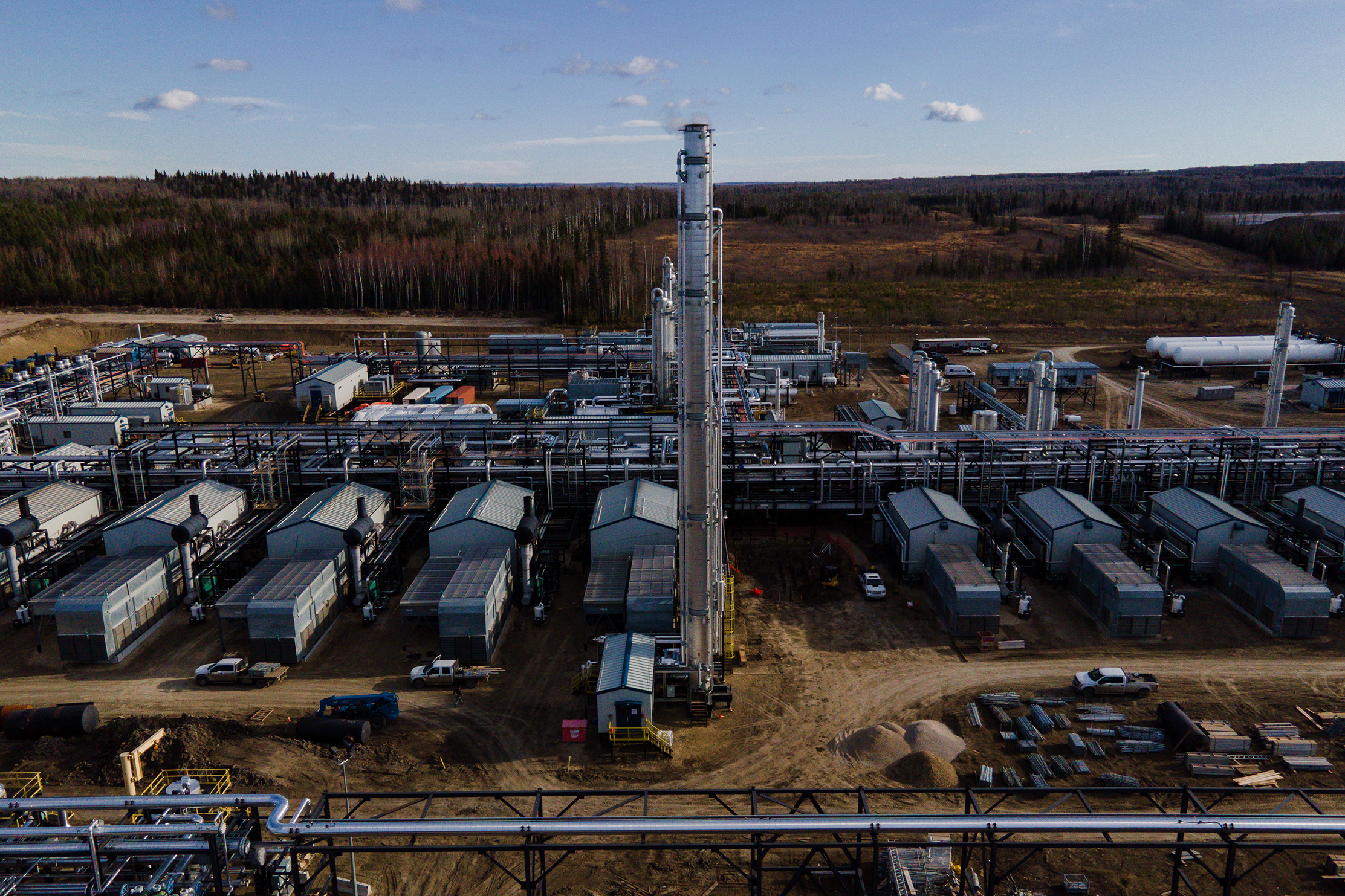
Advances in carbon capture and storage (CCS) technology are expected to help a Canadian natural gas producer reach net zero emissions by 2025.
Advantage Energy has been operating CCS at its Glacier gas plant near Grande Prairie, Alberta since 2011. Now the next generation of the technology, known as modular carbon capture and storage (MCCS), is up and running.
Since capturing its first carbon in August 2022, the MCCS project has sustained CO2 recovery rates of 90 to 95 per cent, according to Craig Blackwood, chief financial officer of Entropy Inc. At full development – expected in 2023 – the facility is expected to capture 200,000 tonnes of CO2 per year, or the annual equivalent of taking 40,000 vehicles off the road.
“After our [Glacier] project is complete, we anticipate scaling up and deploying to a global level for multiple applications in multiple industries,” Blackwood says.
Entropy is the cleantech subsidiary of Advantage Energy, established in March 2021 to develop and deploy CCS technology.
CCS is viewed by the International Energy Agency (IEA) and others as an essential technology to help reduce emissions in large industrial sectors and achieve global net zero targets.
CCS is the process of capturing CO2 before it enters the atmosphere and permanently storing it in a safe and reliable manner.
At the Glacier gas plant, Entropy’s CCS development is considered to be the world’s first commercial project to capture and store CO2 from the combustion of natural gas, according to the Global CCS Institute.
“It’s great to see another Canadian CCS project come online, adding to our country’s leadership in deploying this critical technology that is central to meeting our national and global emissions reduction commitments,” says James Millar, CEO of the International CCS Knowledge Centre.
Canada – and Alberta in particular – has been a pioneer in the development of CCS, Miller says.
“Our country is home to at least five of the world’s 30 existing commercial-scale CCUS facilities and we account for approximately 15 per cent of current global CCS capacity even though we generate less than two per cent of global CO2 emissions.”
The new CCS project at Advantage’s Glacier gas plant builds on its previous gas processing experience, says Erik Petursson, Entropy’s director of commercial.
Advantage has been capturing 10 kilotonnes of CO2 per year through its selection of technology in the processing of natural gas for the past decade.
“This reduces the CO2 that would otherwise flow into the natural gas pipeline distribution system thereby reducing ultimate emissions at the burner tip,” he says.
A key technology change is that, while initial CCS operations at the Glacier Gas Plant captured CO2 pre-combustion, the new CCS project uses post-combustion capture technology.
The difference between the two is whether CO2 emissions are the by-product of industrial processes (pre-combustion) or emissions from fuel being burned (post-combustion).
Post-combustion CCS is more difficult to achieve due to lower CO2 concentration and lower pressure, Petursson says.
Entropy’s process uses a solvent that was developed by the University of Regina’s Clean Energy Technology Research Institute. Using this solvent is expected to result in lower costs and higher capture rates.
Millar says CCS around the world is expected to enable 15 per cent of emissions reductions required to reach net zero this century.
“These projects are models for the next generation of CCS being planned around the globe, providing valuable lessons that will yield new facilities with the potential to safely capture and permanently store more CO2 at a lower cost than what has been possible to date,” he says.
“We are at the forefront of the technical, regulatory and policy spheres when it comes to CCUS, and with this level of activity underway, Canada is well suited to reduce emissions and capture value from the massive expansion of CCS on the horizon.”
The unaltered reproduction of this content is free of charge with attribution to Canadian Energy Centre Ltd.